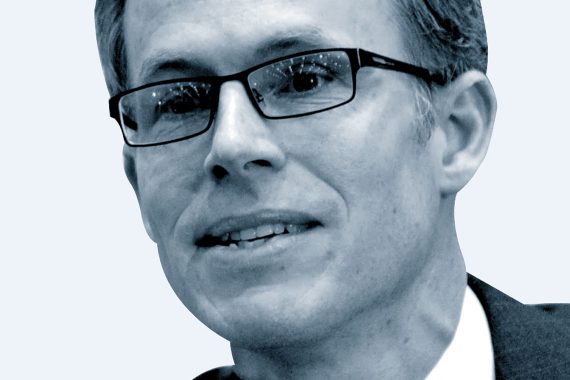Why is it so expensive for GPs to get a little bit of training?

The next time you part with a three-figure sum for a day’s medical education, ask yourself a simple question – does my education really cost this much?
And when, at said conference, you find yourself feeling morally obliged to speak to the pharmacy representatives who have kindly sponsored the event so that you don’t have to pay the true cost of such a prestigious educational event, ask yourself again – is it really that expensive?
Or is someone just making a lot of money?
I know that you can make money out of education because I have just organised a paid-for event for the first time. When I planned From Health to Sickness, a one day event on the subject of Overdiagnosis, I was determined to make it non-profit making.
Despite keeping income as low as possible by making it free of any commercial sponsorship and charging only £40 to attend, I still found myself with £995.96 left over – money I was delighted to be able to donate to our fabulous local children’s hospice, Shooting Star Chase.
It left me thinking, though. If cheap, sponsor-free education is possible, why doesn’t it happen more often?
Time and again I have heard the argument that medical education depends on sponsorship only because doctors would be too tight-fisted to pay the true costs – increasingly I believe this to be a lie – the true reason that commercial sponsorship and medical education remain wedded together is that the organisations behind the events see such activity as a lucrative, profit-making exercise.
Now I’m not against people making a profit, but we need to be transparent about what we are paying for. Take the RCGP Annual Conference, for instance – an event that I would highly recommend by the way – from 23 June a fee-paying RCGP member will pay a cool £538 to attend.
Now the SECC in Glasgow won’t be cheap as a venue – but at over £500 per delegate do we need sponsorship as well? Take a look at the RCGP accounts and you start to get an answer.
The RCGPAC 2013 conference generated a profit of £239K – at around 1,000 delegates, that could nearly halve the conference fee. Or, more importantly, it brings into question whether the sponsorship is really there to pay for the education, or brought in to boost college funds.
I use the example of the College simply because it is a conference I have attended, not because they are doing anything unusual; I’m sure most medical organisations do the same. I’m not even saying it is wrong – it can be argued that this is a very useful way of boosting the income of medical organisations, but it does demonstrate that medical education has become a commercial enterprise.
The key barrier to breaking the ties with industry is not the willingness of individual doctors to pay for their education, but the view of organisations and charities that medical education is a good way to raise funds, and that commercial sponsorship is a valid way to boost such activity. The question is – do individual doctors agree? And, perhaps more importantly, what would our patients think?
There is an ethical debate to be had, and grassroots doctors need to make it happen – since those who are making the profit will keep on turning a blind eye for as long as we let them.
Dr Helen Stokes-Lampard, RCGP honorary treasurer, responded: ‘Our full-price fees are on a par with the cost of similar events but the majority of delegates do not pay full price as we actively encourage our members to take advantage of our early-bird rates, which are considerably cheaper.
‘Rates for GP trainees are very heavily discounted and medical students have free access to sessions on the final day.
‘We have to run the Conference on a commercial basis but are very open about this. Only by accepting sponsorship and selling exhibition space can we keep delegate fees at the current rates and without this contribution, we would be unable to deliver a showcase event that thousands of GPs and primary care professionals value and enjoy every year.
‘Any profits generated are ploughed back into fulfilling our charitable objectives of supporting general practice and raising standards of patient care.’
Dr Martin Brunet is a GP in Guildford. You can tweet him @DocMartin68
Ed’s note: Pulse Live is free for GPs to attend and has buckets of CPD – see you in Birmingham on 15 October!
Pulse October survey
Take our July 2025 survey to potentially win £1.000 worth of tokens




 Oviva’s fully remote Tier 3 Weight Management programme
Oviva’s fully remote Tier 3 Weight Management programme





